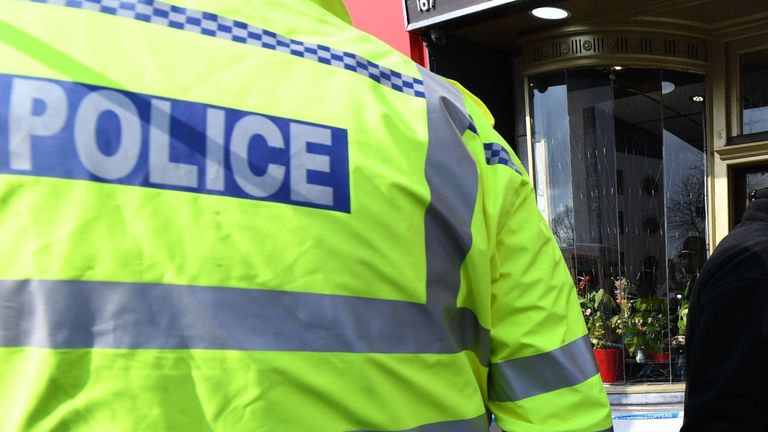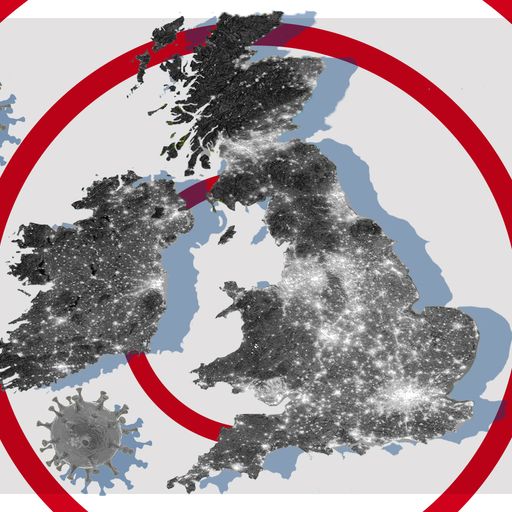Coronavirus: Woman fined £660 for refusing to tell police why she was out
Marie Dinou refused to speak to officers when asked to explain her reason for travel.
Thursday 2 April 2020 15:30, UK
A woman arrested by police for breaking a new coronavirus law has been fined £660 by magistrates.
According to police, Marie Dinou, 41, refused to explain to officers her reason for essential travel when they found her on a platform at Newcastle railway station.
She was arrested for breaching the new Coronavirus Act and ticket fraud and appeared in court two days later, where she denied both offences. She was found guilty.
The case was condemned by privacy campaigners who claimed police risked losing public support by their handling of the new emergency powers.
Dinou, from York, was fined £85 for ticket fraud, but £660 for breaking the new COVID-19 regulations on leaving home without a reasonable excuse. She was also ordered to pay £80 costs.
British Transport Police said in a statement: "On Saturday 28 March at around 8am, officers at Newcastle Central station received a report from rail staff of a woman loitering between platforms.
"They approached Dinou and engaged with her in an attempt to understand her reasons for essential travel, but following several more attempts by officers to explain and encourage she refused to speak to officers.
"Having explored all options, Dinou was arrested on suspicion of travel fraud and breaching the restrictions imposed under the new Coronavirus Act 2020."
Under the new law, police can issue £60 on-the-spot fines to anyone leaving their home without a reasonable excuse if they refuse a request to go home.
Reasonable excuses include shopping for basic needs, exercising and 'absolutely necessary' travel to and from work.
But suspects can also be arrested and charged with breaking the new laws brought in last month in the wake of the pandemic. If found guilty they face unlimited fines.
BTP's Assistant Chief Constable Sean O'Callaghan said: "While a ticket offence had also been committed in this case, enforcement of any sort under the new regulations really is a last resort, especially arrest.
"In this case, officers tried their upmost best to engage with Dinou. I can assure you we would much rather not have to take such action.
"We strongly urge the public to do the right thing and help us save lives by staying at home and slowing the spread of the virus."
:: Listen to the Daily podcast on Apple Podcasts, Google Podcasts, Spotify, Spreaker
Privacy campaign group Big Brother Watch said the case confirmed its worst fears.
Director Silkie Carlo said: "The Coronavirus Act gives police huge powers to police to arbitrarily fine, detain and punish potentially anyone in this country.
"The new law defines 'potentially infectious persons' so loosely as to be meaningless and capture the entire British public.
"It seems here that someone who declined to give police their personal details has been classed as 'potentially infectious' and criminalised as a result.
"It's so important that people follow the government guidance to protect themselves and others. Extraordinary powers are needed in these circumstances to protect public health.
"However, these emergency powers are the most draconian ever seen in peacetime Britain.
"These breathtaking powers can even be used to detain and isolate our children. If the police are to maintain credibility and public trust in their handling of these extreme emergency powers, they will need to use them proportionately and in accordance with the law. They appear to have fallen at the first hurdle."






